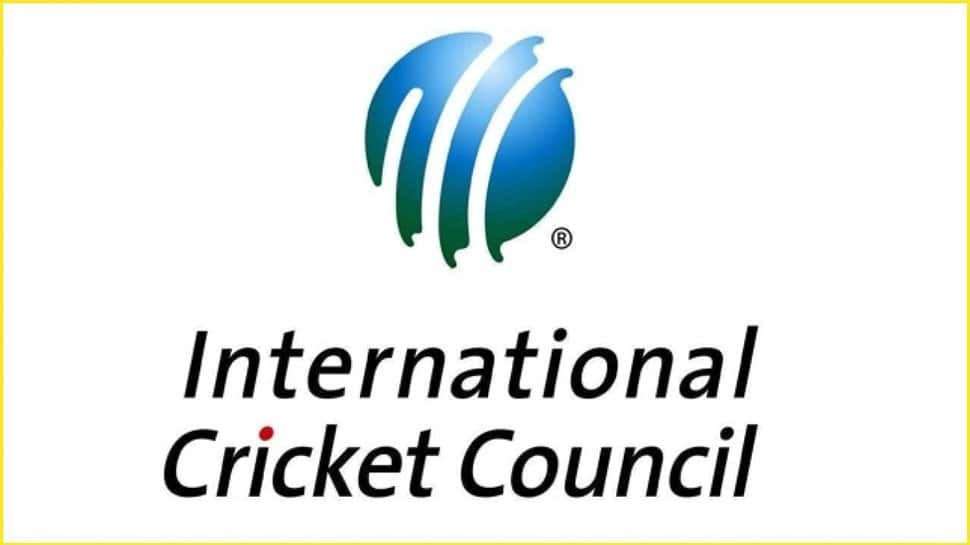Dubai: The contentious 'Umpire's Call' will continue to be a part of the Decision Review System, the International Cricket Council's Board ruled on Thursday, but introduced a few changes to the current DRS protocols.
Called 'confusing' by India captain Virat Kohli, the Umpire's Call has been a subject of controversy for a while now.
As per the existing rule, 50 per cent of the ball should be hitting at least one of the three stumps for the batsman to be adjudged LBW on review in case an umpire's not out call has been challenged.
'The Cricket Committee had an excellent discussion around Umpire's Call and analysed its use extensively,' ICC's Cricket Committee head and former Indian captain Anil Kumble said in statement issued by the governing body after the end of its board meetings on Wednesday.
ICC allows extended squads for senior events
The ICC on Thursday decided to allow seven additional players or support staff to accompany squads for its senior events in view of COVID-19 quarantine requirements, a decision which will allow India to travel with a 30-strong squad for the World Test Championship final in June. The decision was taken by the ICC Board after a series of virtual meetings.
"The ICC Board agreed to allow Members to take up to seven additional players and/or support staff to accompany the squad of 23 to ICC senior events where a period of quarantine is required and/or teams are accommodated in a bio-secure bubble," the world body said in a statement.
The ICC also said it expects the issues of tax arrangements and visa guarantees for the upcoming T20 World Cup to be "resolved over the next month" after receiving an update from the BCCI on "positive discussions with the Indian government."
In women's game, the ICC decided to approve two changes to the women's ODI playing conditions. "Firstly, the discretionary 5-over batting powerplay has been removed and secondly, all tied matches will be decided by a Super Over," it said.
It was also decided that Test and ODI status shall be permanently awarded to all Full Member women's teams. Additionally, all matches at the Birmingham 2022 Commonwealth Games be classified as women's T20 Internationals.
The Board also decided to postpone the inaugural Women's U19 World Cup, which was due to be held in Bangladesh at the end of the year, because of the COVID-19 pandemic.
"COVID-19 has had a significant impact on the establishment and subsequent development of the U19 programmes in many countries and teams would not be able prepare appropriately for a global event later this year. As such, the inaugural event will now take place in January 2023," the ICC said.
Similarly, the global qualifier for the Women's World Cup 2022 will be held in December this year to allow teams the best possible preparation.
Among other decisions, the ICC has appointed Mel Jones (Cricket Australia) and Catherine Campbell (New Zealand Cricket) as Full Member representatives on its Women's Committee.
The Cricket Committee also discussed "the more general use of replacement players in the international game" following the recent introduction of replacement players for both concussion and COVID-19.
"To better understand the implications of allowing players to be replaced during a match the definition of a first-class match will be changed to allow the unqualified use of replacement players."
The ICC Board also decided to set up a Member Support Fund for Cricket with USD 5 million being made available in grants to support the playing of international cricket. The fund will be made available in form of a "co-payment" contribution with a maximum grant of 50 per cent being available for Members upon application.
"The principle underpinning DRS was to correct clear errors in the game whilst ensuring the role of the umpire as the decision maker on the field of play was preserved...Umpire's Call allows that to happen, which is why it is important it remains," he added.
Kohli had argued that the batsman should be declared out if the ball is hitting the stumps, even if marginally.
The ICC introduced three minor changes to the DRS and third Umpire protocols.
"For LBW reviews, the height margin of the Wicket Zone will be lifted to the top of the stumps to ensure the same Umpire's Call margin around the stumps for both height and width," the ICC stated.
This means that the review, which until now covered till the base of the bails, will extend to the top of the bails as well, effectively increasing the height of the wicket zone while analysing the trajectory of the ball.
A player will also be able to ask the umpire whether a genuine attempt has been made to play the ball before deciding to review an LBW decision.
'The third Umpire will check a replay of any short run that has been called and correct any error prior to the next ball being bowled.' It was also decided that the interim COVID-19 regulations that were introduced in 2020 to allow international cricket to resume will continue to be followed.
It means that home umpires will be asked to officiate games where neutral umpires were previously required ad hygiene protocols like ban on saliva will continue.
"The committees noted the excellent performances by the home umpires over the past 9 months but encouraged the more widespread appointment of neutral Elite Panel umpires whenever circumstances allow," the ICC release said.
















